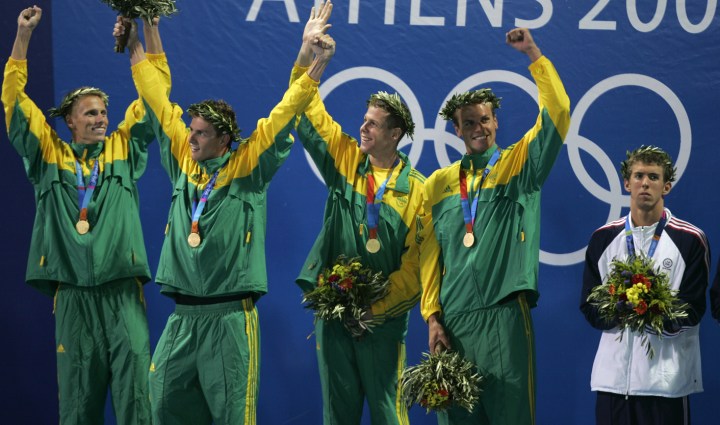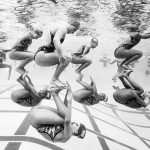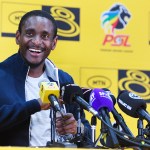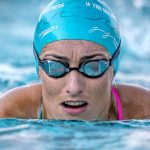Sport
Olympics: SA’s 108 years of highs, lows and Kodak moments

South Africa made its Olympic debut in St Louis in 1904, but didn’t take its first medals until four years later. Reggie Walker won the 100m sprint, becoming the youngest winner at 19. Then Charles Hefferon dropped to silver in the marathon after he took a glass of bubbly from a fan in the crowd and, in a classic tortoise-and-rabbit move, fell behind. Since then, we’ve seen over a century of victories, disappointments and inspirational athletes. By GREG NICOLSON.
The medal hauls
Our most successful games remain those before the International Olympic Committee (IOC) banned South Africa from competition. In consecutive games, the athletes starred in tennis, boxing and endurance events like the marathon and road cycling. With sparks of brilliance, SA took usually finished 10-20 on the medal tally.
Stockholm in 1912 remains the team’s best performance, where they won four gold medals and earned seventh place. Charles Winslow took gold in the men’s tennis singles and doubles tennis. And after nine years working in an underground gold mine, Rudolph Lewis won the men’s cycling road race, while Ken McArthur became the second South African to win the marathon.
After a break for World War I, South Africa returned to the 1920 Olympics in Antwerp to take a haul of 10 medals, its greatest total. Kimberley-born Bevil Rudd starred, fresh from the war with a Military Cross for bravery. He won gold in the athletics 400m, was a member of the silver-winning 4x400m team and won a bronze in the 800m.
That total was matched in Helsinki, 1952, when the first South African female athletes won medals. Esther Brand won in the high jump, with Joan Harrison taking the 100m backstroke. In her first international competition at 14 years old, Harrison had won gold at the Commonwealth Games before taking Olympic gold two years later and retiring two years after.
The boxers
Rumour is that South Africa’s history of boxing started with bare-knuckle fights around Cape Town, and then flourished in the mining towns around Johannesburg and Kimberley. Prior to the twentieth century, bouts like Professor Couper versus Woolf Bendoff popularised the sport throughout the country and after the turn there was a push to make it legal. Whatever the mix was, it worked.
South Africa’s boxers won medals at every games between 1920 and 1960 – Antwerp, Paris, Amsterdam, Los Angeles, Berlin, London, Helsinki, Melbourne and Rome. They haven’t won a medal in the event since South Africa returned to the Olympics, yet in over 100 years, boxing has delivered the most medals after athletics.
One boxer who never won a medal is Robey Leibbrandt. The light-heavyweight fought with a broken hand in the semi-finals at the 1936 Berlin games and was thought not only to have won the crowd’s respect but to have also won on points. The judges disagreed, and doctors refused to let Leibbrandt compete for bronze.
His performance did earn him an audience with Adolf Hitler, however. It’s said to have convinced him to stay in Germany and join the army when the war broke out. The paratrooper eventually returned to South Africa to lead a coup against Jan Smuts’ government, which joined the Allies in fighting against Germany. The plan failed, and Leibbrandt was caught and sentenced to death. Smuts commuted it to a life sentence, but Leibbrandt was pardoned once the National Party took power.
The banning
Only weeks before the 1964 Tokyo Olympics, the IOC withdrew South Africa’s invitation after it failed to condemn Apartheid. South Africa had planned to send seven black athletes to the games, but the IOC demanded more. They wanted an end to the racialisation of sport, and in particular for South Africa to allow athletes of different races to compete in the same competition.
The 28-year hiatus is both a high and low point. Not being able to compete on the world stage sucks. Simple as that. It led to athletes like Zola Budd moving to other countries.
But the point of the ban was to isolate the NP government, locally and internationally, and use sport to do more than inflate egos and promote clichés. President Zuma praised the IOC recently for the support it gave the liberation movement. He said it “stood with us at every turn of the struggle for freedom and liberation, stating boldly and unapologetically that there could be no normal sport in an abnormal society.”
The chapter was closed in South Africa’s Olympic history when it returned to the 1992 games in Barcelona after Nelson Mandela’s release from prison. While the country hadn’t yet secured majority rule, one moment suggested South Africa was ready to participate in the games, and the world was ready to accept it.
After South Africa’s favourite, Elana Meyer, was beaten across 10,000m by Ethiopia’s Derartu Tulu, Tulu draped herself in her country’s flag and embarked on a victory lap. Meyer took the flag of SA’s Olympic Committee, under which they were competing, and joined her. The two African athletes, black and white, celebrated together.
Josiah Thugwane
“I won the medal for all the people of South Africa and especially for my President, Nelson Mandela, who made it possible for us to be part of the international community,” said Thugwane after winning the 1996 men’s Olympic marathon, when he became the first black South African to take gold.
Born in Bethal, Mpumalanga, he had no schooling and had worked as a security guard at a mineworkers’ hostel so that he could join the mine’s athletics squad. Only months before the Olympics, Thugwane was hijacked in Bethal. “Three or four men got in my car and made me drive away,” he said. “They told me to hand over the keys, but I refused, and there was a bit of a scuffle. They produced a gun and there was shooting. I jumped out of the car while it was still moving and that’s how it ended.”
He won in Atlanta, still bearing a bullet scar on his chin. In the months leading up to the event, he required medical treatment for the back injury caused from jumping out of the car.
To deal with his newfound fame, Thugwane honed his English and learned to read and write. But celebrity came with a cost. People wanted money and even threatened the stocky runner’s life.
Freestyle four
After Penny Heyns inspired a generation of swimmers with wins in the 100m and 200m breaststroke in Atlanta, four young South Africans rewrote history in the pool in Athens.
Despite qualifying with the fastest time for the 4x100m freestyle relay, the South African men’s team were seen as having slim chances of winning a medal. Their rivals were the who’s who of swimming – the US with Michael Phelps, the Aussies with Ian Thorpe, and the Dutch with Pieter van den Hoogenband.
Roland Schoeman led for South Africa. After 100m, he had almost a body length on the field. Lyndon Ferns held the lead. If anyone’s seen the American commentary of the event, that’s when tone changed. “On paper, South Africa actually has been favoured to win this race. Everyone’s been talking about Australia and the United States. But South Africa is just so strong and has so much depth in this race,” the commentator said. But that’s not what had been said before.
Darian Townsend came in and swam at the head of the field, leaving Ryk Neethling to take the race. The “favourites” were left fighting for second place. Pumping their fists and flexing their muscles after winning, the team had reason to celebrate. They set a new world record and became the first South African men to win gold in the pool.
Beijing
There isn’t much to say about 2008. With silver in the men’s long jump, Khotso Mokoena was SA’s only medalist. It was the worst performance since Berlin 1936, and prompted the SA Sports Confederation and Olympic Committee to boldly target 12 medals in London. It would be the team’s best-ever haul, they promised.
Don’t hold your breath. But London promises to write a new chapter in South African sports. With athletes like Oscar Pistorius, Cameron van der Burgh, Sunette Viljoen and Caster Semenya, we’re in for a good story, regardless of how many medals they take home. DM
Photo: Phelps of the U.S. looks at South Africa ‘s team celebrating gold medal in the men’s 4×100 metres freestyle relay final at the Athens 2004 Olympic Games. Michael Phelps of the U.S. (far right) stands next to South Africa ‘s (LtoR) Rik Neethling, Mark Roland Schoeman, Lyndon Ferns and Darian Townsend celebrating their gold medal in the men’s 4×100 metres freestyle relay final at the Athens 2004 Olympic Games August 15, 2004. South Africa won the race in a time of 3 minutes 13.17 seconds. REUTERS/Mike Blake


















 Become an Insider
Become an Insider